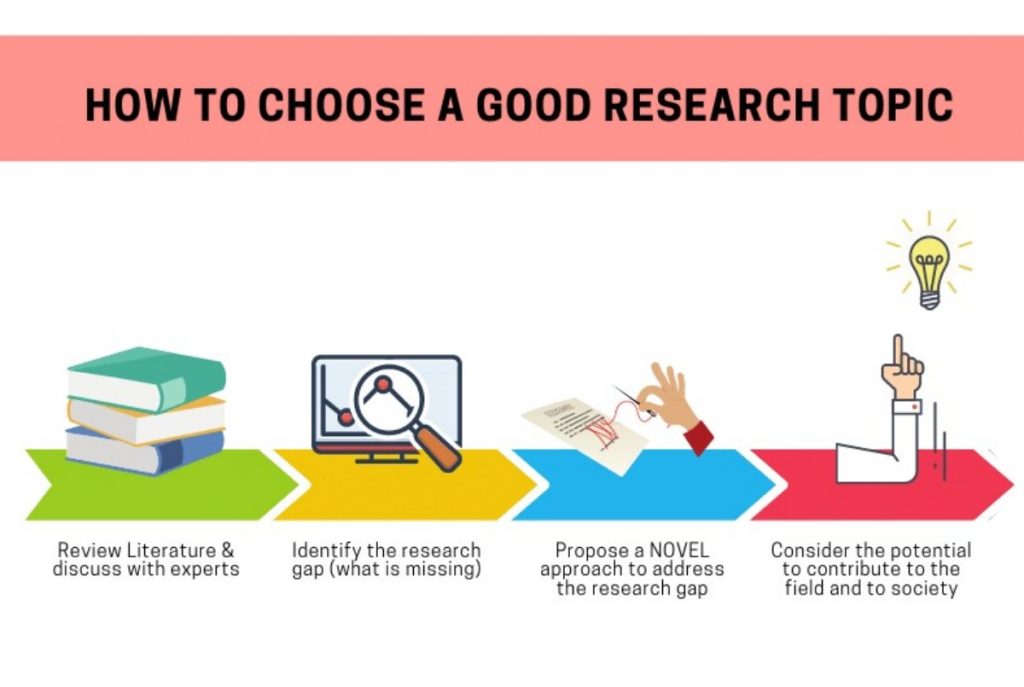Crafting a Winning Research Proposal: A Guide for MSc and PhD Students
Writing a research proposal can be a daunting task, especially for MSc and PhD students. It’s a crucial part of the research process since it acts as a blueprint for your study. A well-written research proposal helps you gain approval for your research topic, secure funding, and establish a clear direction for your work.
Crafting a winning research proposal requires a lot of planning, research, and attention to detail. It can be a challenging task, but with this guide, we will provide you with all the tips and tricks to help you create a successful research proposal. From outlining your research question and objectives to selecting the right methodology and formatting your proposal, read on to learn how to craft a winning research proposal.
What is a research proposal? The significance of a well-crafted research proposal

What is a research proposal? A research proposal is a document that explains what you plan to research, why it’s worth researching, and how you plan to investigate it. It is usually prepared in advance of starting a research project and often constitutes a request for sponsorship or funding. A research proposal provides an in-depth analysis of the existing literature and the theories that support your hypothesis, which is a projected answer to your research question
A well-crafted research proposal is the foundation of any successful MSc or PhD journey. It serves as a roadmap, guiding students through the complex process of conducting research and ultimately contributing to the existing body of knowledge in their field.
The significance of a well-crafted research proposal cannot be overstated. It showcases the student’s ability to think critically, identify research gaps, and formulate a clear research question. Moreover, it demonstrates their understanding of the relevant theoretical frameworks, methodologies, and ethical considerations necessary for conducting rigorous and impactful research.
A strong research proposal not only convinces the academic community of the value and feasibility of the proposed study but also provides a solid basis for obtaining funding and gaining necessary approvals from research ethics committees. It is the first impression that researchers make on their supervisors, evaluators, and potential collaborators, highlighting their capability, dedication, and potential to make a meaningful contribution to their field.
Crafting a winning research proposal requires careful planning, attention to detail, and a deep understanding of the research topic. It involves extensive literature reviews to identify existing gaps and build a strong theoretical framework upon which the proposed study will be built. Furthermore, it necessitates a well-thought-out research design, including appropriate data collection and analysis methods, to ensure valid and reliable results.
In summary, a well-crafted research proposal is not just a mere formality, but a crucial step towards conducting impactful research. It sets the stage for a successful MSc or PhD journey, guiding students towards their research goals and paving the way for future academic and professional achievements.
Understanding the purpose of a research proposal
Before embarking on the journey of crafting a research proposal, it is crucial to understand its purpose and significance. A research proposal serves as a blueprint for your study, outlining the objectives, methodologies, and anticipated outcomes of your research project.
The primary purpose of a research proposal is to convince the intended audience, such as your academic advisor or a funding committee, that your research idea is worth pursuing. It should demonstrate your understanding of the research problem, showcase your ability to conduct rigorous research, and convince others of the potential value and impact of your study.
A well-crafted research proposal also serves as a roadmap for your research journey. It helps you clarify your research objectives, identify potential challenges and limitations, and develop a systematic plan of action. By thoroughly outlining your research design and methodology, you can ensure that your study is well-structured and feasible.
Furthermore, a research proposal enables you to situate your study within the existing literature. It highlights the gaps in knowledge or unresolved issues that your research aims to address. By conducting a comprehensive literature review, you can demonstrate your awareness of the current state of research in your field and position your study as a valuable contribution to the scholarly conversation.
Lastly, a research proposal is often required to secure funding or gain approval from an ethics committee. It provides a rationale for the allocation of resources, whether it be financial resources, access to data or participants, or other necessary support. A well-structured and persuasive proposal increases your chances of obtaining the necessary resources and permissions to conduct your research.
In summary, understanding the purpose of a research proposal is essential for MSc and PhD students. It helps you articulate your research objectives, develop a solid plan of action, position your study within the existing literature, and secure the necessary resources for your research journey. By investing time and effort into crafting a compelling proposal, you lay a strong foundation for a successful research project.
Choosing a research topic and formulating research questions

Choosing a research topic and formulating research questions are pivotal steps in crafting a winning research proposal. The topic you select will not only determine the direction of your research but also its relevance and significance in your field of study. Therefore, it is crucial to choose a topic that aligns with your interests, expertise, and the current gaps in knowledge.
To begin this process, start by brainstorming potential research areas that intrigue you. Consider the latest trends, emerging issues, and unresolved problems in your field. You can also draw inspiration from your coursework, previous research experiences, and discussions with professors or industry professionals.
Once you have identified a few potential topics, it’s time to narrow down your focus and formulate specific research questions. These questions should be clear, concise, and address a specific aspect or problem within your chosen topic. They should also be open-ended, allowing for further exploration and analysis.
To ensure the viability of your research questions, it is essential to conduct a thorough literature review. This will help you identify gaps in existing knowledge and understand the current state of research in your chosen area. By doing so, you can ensure that your research questions are novel, relevant, and contribute to the existing body of knowledge.
Moreover, consider the feasibility of your research questions. Assess the availability of resources, data, and access to potential participants or subjects. It is important to choose research questions that are realistic and achievable within the given time and resource constraints.
Remember that your research proposal should demonstrate a clear understanding of the research area and a compelling rationale for why your chosen topic is worth investigating. So, take the time to carefully select your research topic and formulate research questions that will lay the foundation for a successful and impactful study.
Conducting a comprehensive literature review
Conducting a comprehensive literature review is a crucial step in crafting a winning research proposal for MSc and PhD students. This process involves thoroughly exploring existing scholarly works, research articles, books, and other relevant sources to gain a deep understanding of the current knowledge and gaps in your chosen field of study.
The purpose of a literature review is twofold: to familiarize yourself with the existing research and to position your own study within the broader academic conversation. By conducting a thorough review, you can identify the key theories, concepts, methodologies, and findings that have shaped the current understanding of your research topic.
This not only helps you build a solid foundation for your proposal but also allows you to demonstrate your awareness of the existing scholarship and the unique contribution your study will make.
To conduct a comprehensive literature review, start by defining your research question or objectives clearly. This will guide your search for relevant literature and help you stay focused during the review process. Utilize academic databases, online libraries, and search engines to gather a wide range of sources. It is important to include both seminal studies and recent publications to ensure you have access to the latest research and developments in your field.
As you dive into the literature, take meticulous notes, highlighting key concepts, methodologies, and findings. Look for patterns, discrepancies, and gaps in the existing research that your study can address. It is essential to critically analyze and evaluate each source, considering their validity, reliability, and relevance to your research topic.
Organize your findings systematically, grouping them based on themes, theories, or methodologies. This helps you visualize the connections between different studies and identify areas where your research can contribute something new. Additionally, citing relevant literature throughout your proposal strengthens the credibility of your research and shows that you have done your homework.
Remember, a comprehensive literature review is not merely a summary of existing research but an opportunity to demonstrate your critical thinking skills and the potential significance of your proposed study. By conducting a thorough review, you lay the groundwork for your research proposal, setting the stage for a compelling and impactful study.
Establishing the research methodology and approach

Establishing the right research methodology and approach is a critical step in crafting a winning research proposal. This section outlines the framework within which your study will be conducted, demonstrating your understanding of the research process and your ability to execute it effectively.
First and foremost, it is essential to select the appropriate research design that aligns with the nature of your research question. Whether it’s experimental, qualitative, quantitative, or a combination of different methods, you need to justify your choice based on the objectives of your study and the data you seek to collect.
Next, you should outline the specific procedures and techniques that will be employed to gather and analyze data. This may include surveys, interviews, observations, experiments, or archival research, among others. Each method should be described in detail, highlighting its relevance and reliability in addressing your research objectives.
Furthermore, it is crucial to discuss the sampling technique and sample size that will be used. Explain how you will select participants or sources for your study, ensuring that they are representative of the population or phenomenon under investigation. Justify your choice of sample size, considering factors such as statistical power and feasibility.
In addition to the methodology itself, you should address any ethical considerations associated with your research. Discuss how you will ensure the protection of human subjects, the privacy of participants, and the integrity of your data. If applicable, mention any necessary approvals or permissions you will seek before commencing your study.
Lastly, consider the limitations of your chosen methodology and approach. Acknowledge any potential challenges or constraints that may impact the validity or generalizability of your findings. This demonstrates your awareness of the potential pitfalls and your ability to mitigate them through careful planning and execution.
By clearly defining your research methodology and approach, you showcase your ability to conduct rigorous and reliable research. This section of your research proposal should leave no room for ambiguity, providing a solid foundation for the evaluation and approval of your study.
Designing a clear and concise research plan
Designing a clear and concise research plan is crucial when crafting a winning research proposal. A well-designed plan not only demonstrates your understanding of the research topic but also showcases your ability to execute the proposed study effectively.
To begin, clearly state the research objectives and specific research questions that you aim to address. These objectives should be concise and focused, highlighting the main goals of your study. By presenting clear objectives, you enable the readers to understand the purpose and significance of your research.
Next, outline the methodology you intend to employ to gather and analyze data. This section should provide a detailed description of the research design, data collection methods, and data analysis techniques. It is important to justify your choices and explain how they align with your research objectives. Additionally, consider any potential limitations or challenges that may arise during the research process and discuss strategies to mitigate them.
Furthermore, provide a timeline that outlines the different stages of your research project. This timeline should include milestones, deadlines, and an estimated duration for each task. By presenting a well-structured timeline, you demonstrate your ability to effectively plan and manage your research project.
Lastly, consider including a contingency plan in your research proposal. This plan should outline alternative approaches or methodologies that can be adopted in case of unexpected challenges or limitations. This demonstrates your flexibility and preparedness to adapt to unforeseen circumstances, which can greatly enhance the feasibility and credibility of your research proposal.
Designing a clear and concise research plan requires careful thought and consideration. By demonstrating a strong understanding of the research objectives, outlining a suitable methodology, presenting a well-structured timeline, and including a contingency plan, you can craft a winning research proposal that captures the attention and support of reviewers and funding agencies.
Outlining the research objectives and expected outcomes
Outlining the research objectives and expected outcomes is a crucial step in crafting a winning research proposal. This section serves as the backbone of your proposal, as it clearly defines the purpose and goals of your study.
Firstly, you need to identify the research objectives. These are the specific goals or questions that you aim to address through your research. It is essential to ensure that your objectives are clear, concise, and aligned with the overall scope of your study. Consider the specific knowledge gaps or problems in your field that your research aims to address. By clearly stating your objectives, you demonstrate a strong understanding of the research area and the importance of your study.
Next, you should outline the expected outcomes of your research. What do you hope to achieve or discover through your study? Will your research contribute to existing theories, provide practical solutions, or generate new knowledge? Clearly articulating the expected outcomes highlights the significance and potential impact of your research.
When outlining the research objectives and expected outcomes, it is advisable to use specific and measurable terms. This helps to provide a clear framework for evaluating the success of your research upon completion. Additionally, consider the feasibility of achieving these objectives within the proposed timeline and available resources.
Remember to align your objectives and expected outcomes with the research methodology and approach you have described earlier in your proposal. This ensures a logical and coherent flow throughout your research proposal, demonstrating the alignment between your research questions, methodology, and expected outcomes.
By effectively outlining the research objectives and expected outcomes, you showcase a well-thought-out and purpose-driven study. This section not only enhances the clarity and focus of your proposal but also convinces the evaluators of the significance and potential impact of your research endeavor.
Demonstrating the feasibility of the research project
In order to craft a winning research proposal, it is crucial to demonstrate the feasibility of your research project. This section of your proposal should showcase your ability to successfully carry out the proposed research, ensuring that it is achievable within the given time frame and resources.
To start, clearly outline the objectives of your research project. These objectives should be specific, measurable, attainable, relevant, and time-bound (SMART). By doing so, you set the foundation for demonstrating the feasibility of your project as you can clearly articulate what you aim to achieve.
Next, provide a detailed methodology that outlines the steps you will take to address your research questions or hypotheses. This should include the research design, data collection methods, and analysis techniques you plan to employ. It is essential to demonstrate that you have carefully thought through each step and have the necessary skills and resources to execute the proposed methodology effectively.
Furthermore, address any potential limitations or challenges that may arise during the course of your research. By acknowledging these factors, you show that you have considered the potential risks and have devised contingency plans to mitigate them. This adds credibility to your proposal and reassures the evaluators that you have thoroughly assessed the feasibility of your research.
Additionally, provide a realistic timeline for your research project. Break down the major milestones and deliverables, along with their corresponding timeframes. This demonstrates your ability to manage your time effectively and ensures that your research can be completed within the allocated time.
Finally, highlight any collaborations or partnerships that you have established or plan to establish to support your research project. This could include access to specific facilities, expertise from external sources, or collaborations with industry partners. Such collaborations not only enhance the feasibility of your research but also demonstrate your ability to network and leverage resources effectively.
In summary, demonstrating the feasibility of your research project is essential in crafting a winning research proposal. By clearly outlining your objectives, providing a detailed methodology, addressing potential limitations, presenting a realistic timeline, and showcasing collaborations, you can convince the evaluators that your research is feasible and well-planned.
Budgeting and resource allocation
Budgeting and resource allocation are crucial components of any research proposal. As an MSc or PhD student, understanding how to effectively manage your resources can greatly impact the success of your research project.
First and foremost, it is important to determine the overall budget for your research. This includes considering any funding that you may have secured, as well as potential expenses that may arise throughout the duration of the project. Carefully assess the cost of equipment, materials, participant recruitment, and any additional expenses such as travel or conference fees.
Once you have a clear understanding of your budget, you can then allocate resources accordingly. This involves identifying the necessary equipment, materials, and personnel needed to carry out your research. It is essential to prioritize your resources based on their importance to the project and allocate funds accordingly. This may involve making difficult decisions and potentially seeking alternative funding sources for certain aspects of your research.
Furthermore, it is important to consider the timeline of your research project when budgeting and allocating resources. Some expenses may be one-time costs, while others may require ongoing funding throughout the duration of your research. Take into account any potential fluctuations in costs and plan ahead to ensure that you have adequate resources at each stage of your project.
Additionally, it is crucial to keep track of your expenses and regularly review your budget. This will help you identify any potential overspending or areas where cost-saving measures can be implemented. Adhering to a well-planned budget will not only help you stay within financial constraints but also demonstrate your ability to effectively manage resources, which is a valuable skill for future research endeavors.
In conclusion, budgeting and resource allocation are vital aspects of crafting a winning research proposal. By carefully considering your budget, prioritizing resources, and tracking expenses, you can ensure that you have the necessary means to successfully carry out your research project.
Tips for writing a compelling and persuasive research proposal

When it comes to writing a research proposal, it’s crucial to make it compelling and persuasive to capture the attention and interest of your readers. Here are some valuable tips to help you craft a winning research proposal:
- CLEARLY ARTICULATE THE RESEARCH PROBLEM: Start by clearly stating the research problem or question you aim to address. Provide a concise and focused overview of the issue at hand, highlighting its significance and relevance to the field of study.
- PROVIDE A STRONG RATIONALE: Explain why your research is important and how it contributes to existing knowledge. Emphasize the potential impact and benefits your research can bring, both academically and practically.
- CONDUCT A THOROUGH LITERATURE REVIEW: Demonstrate your understanding of the existing body of literature related to your research topic. Highlight any gaps or limitations in current knowledge, and explain how your research will address these gaps or contribute to the field.
- DEVELOP A CLEAR RESEARCH METHODOLOGY: Outline the research methods and techniques you plan to employ in your study. Justify your chosen approach, explaining why it is appropriate for answering your research question and how it aligns with established research practices.
- PRESENT A REALISTIC TIMELINE: Provide a detailed timeline of the various stages of your research, including data collection, analysis, and write-up. Be realistic in your estimations and demonstrate that you have carefully considered the time required for each task.
- DISCUSS POTENTIAL CHALLENGES: Acknowledge any potential challenges or limitations that you anticipate encountering during the course of your research. Show that you have thought through these obstacles and have strategies in place to overcome them.
- Highlight your qualifications and expertise: Showcase your qualifications, skills, and previous experiences that make you well-suited to undertake the proposed research. Demonstrate your familiarity with the relevant research techniques and methodologies.
- SEEK FEEDBACK AND REVISIONS: Before finalizing your research proposal, seek feedback from mentors, advisors, or peers in your field. Incorporate their suggestions and make necessary revisions to strengthen your proposal further.
Remember, a compelling and persuasive research proposal is not just about presenting a well-structured document; it is about convincing others that your research is worth pursuing. By following these tips, you can increase your chances of crafting an outstanding research proposal that stands out and captures the attention of your audience.
Seeking feedback and revisions
Seeking feedback and revisions is a crucial step in crafting a winning research proposal. Once you have completed your initial draft, it is important to share it with trusted mentors, advisors, or colleagues who can provide valuable insights and suggestions.
Receiving feedback from others allows you to gain a fresh perspective on your proposal and identify any areas that may need improvement. It is important to choose individuals who are knowledgeable in your field of study and have experience in reviewing research proposals.
When seeking feedback, be open to constructive criticism and different viewpoints. Remember that the goal is to refine and strengthen your proposal, so it is important to approach the process with an open mind.
Consider organizing a meeting or setting up a virtual discussion to go over your proposal with your reviewers. This will allow for a more interactive and detailed discussion, where you can address specific questions or concerns.
After receiving feedback, take the time to carefully review and consider each comment or suggestion. Reflect on how these revisions can enhance the overall quality and clarity of your proposal.
Don’t be afraid to make significant revisions or even start from scratch if necessary. Remember that your research proposal is a dynamic document that evolves as you gather more insights and refine your research objectives.
By actively seeking feedback and incorporating revisions, you demonstrate your commitment to producing a comprehensive and well-crafted research proposal. This iterative process will ultimately lead to a stronger foundation for your MSc or PhD research journey.
Conclusion: The importance of a strong research proposal in securing funding and support
In conclusion, a strong research proposal holds immense significance when it comes to securing funding and support for your MSc or PhD studies. It serves as the foundation upon which your entire research project will be built, showcasing your knowledge, expertise, and potential contributions to the field.
A compelling research proposal not only demonstrates your understanding of the research topic but also highlights the significance and relevance of your study. It outlines the objectives, methodologies, and expected outcomes of your research, providing a clear roadmap of your intended research journey.
Securing funding and support for your research can be highly competitive, with numerous applicants vying for limited resources. A well-crafted research proposal increases your chances of standing out from the crowd and capturing the attention of funding agencies, institutions, and potential supervisors.
A strong research proposal not only convinces the evaluators of the merit and feasibility of your project but also instills confidence in your ability to successfully execute the research. It showcases your analytical skills, critical thinking abilities, and research methodology expertise, demonstrating that you are well-equipped to tackle the proposed research questions.
Additionally, a well-written research proposal indicates your commitment and passion for the topic, as well as your dedication to contributing new knowledge to the academic or scientific community. It conveys your enthusiasm and motivation to embark on this research journey, which can be influential in attracting support from mentors, advisors, and collaborators.
Therefore, investing time and effort into crafting a winning research proposal is crucial for MSc and PhD students. It is not only a means to secure funding and support but also an opportunity to present yourself as a capable and promising researcher. So, embrace the challenge, adhere to the guidelines, and put your best foot forward in crafting a compelling research proposal that will pave the way for a successful research endeavor.
We hope you found our guide on crafting a winning research proposal helpful and informative. Writing a research proposal can be a daunting task, especially for MSc and PhD students. However, with the step-by-step guidance provided in this blog post, you can approach the process with confidence.
Remember, a well-crafted research proposal is the foundation for a successful research project. Take the time to carefully plan and articulate your ideas, and you’ll be on your way to securing funding and making significant contributions to your field of study. Best of luck with your research endeavors!








